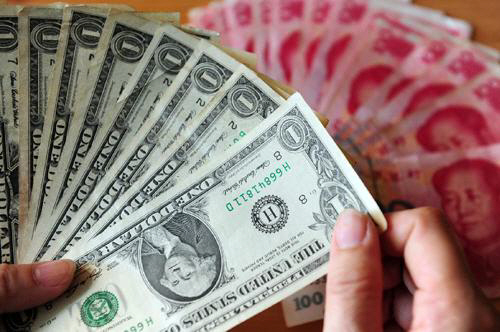 Chinese financial authorities weakened its currency for the second day in a row on Wednesday. The yuan decision could be positive for Chinese economy, but could be negative for the economy as a whole./ Source from search engine Baidu. Chinese financial authorities weakened its currency for the second day in a row on Wednesday. The yuan decision could be positive for Chinese economy, but could be negative for the economy as a whole./ Source from search engine Baidu. |
By Hong Soon-do, Beijing correspondent, AsiaToday - China's yuan is making an extraordinary move. It fell for the second straight day following Tuesday's surprise devaluation, and is likely to fall further.
According to Chinese state-run news agencies including Xinhua News Agency on August 12, the People's Bank of China (PBOC) set the yuan fixing at 6.3306 on Wednesday, 1.62% lower than the previous day's level of 6.2298. The PBOC devalued the yuan by 1.86% on Tuesday.
The reason why Chinese financial authorities devalued its tightly controlled currency for two days in a row is quite simple. China's yuan devaluation is the result of soft domestic demand and uncertain economic picture despite measures it has been taking, such as interest-rate cuts and liquidity infusion. In other words, this can be seen as a drastic measure to contend with an economic slowdown. Besides, China could be stepping up its efforts to become one of the International Monetary Fund's special drawing rights (SDR) basket of curries.
The yuan's devaluation may have limited immediate impact, but will likely help exporters in affordable mobile phone and car sectors. Besides, the economy will be surely recovering gradually. However, the devaluation will raise concerns that China's economy is unstable and will have a negative impact on the economy as a whole.
The problem is that additional weakening of the yuan is highly likely in the future, which will intensity concerns about an economic slowdown. Yiping Huang, professor of economics at Peking University said, "You win some, you lose some. It goes the same to the artificial devaluation of the yuan. Basically, the exchange rate should be left to the market."
Most Read
-
1
-
2
-
3
-
4
-
5
-
6
-
7





















